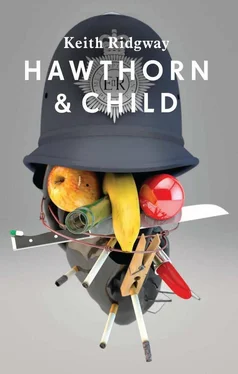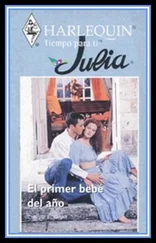Ashid disappeared for two weeks. Neither his family nor his friends, nor Palmer, nor Gull, nor anyone, heard a word from him or saw or laid eyes on him or caught a glimpse of even his shadow, anywhere across all of North London. The police were not informed, as Gull expressed a certain nervousness at the idea. To make up for the lack of an official search, Gull utilized all of his not inconsiderable resources to track Ashid. But he turned up nothing. Nothing at all. His friends knew nothing, and then his enemies knew nothing, and why would they lie? They’re businessmen like him. They’re not wild gangsters. They’re not TV-show baddies. They’re calm, conservative men, and they like a mystery as little as he does.
And then he reappears. He comes home one morning, and his crying wife can get nothing out of him. And she calls Palmer. And Palmer calls Gull, but Ashid will see no one.
Trainer was pale. He looked at the door a lot.
He pushed a large envelope across the table.
*
My living room overlooks the park. As does my office. At night I see men in the bushes by the north railings. In all weathers. I see dogs roam the open spaces. Sometimes there is a human with a leash hovering nearby. Sometimes there isn’t. I see lost children, regularly, wandering in the same few square feet, crying inconsolably. Even after a parent reappears, dashing down the paths for a hug, the child continues crying.
Trainer is a strange man.
The manuscript is almost damp, as if it’s been left outside. Some of the pages are curled and stained, and they don’t sit down pat on top of each other. They are much more like loose leaves. The whole thing smells. It’s in Times New Roman though, double spaced. There are no marks, no corrections. The stains are tea and coffee and grass and earth and god knows. A few pages are torn, ragged, but everything is legible. It has the feel of something treated, weathered, aged — to serve the text.
An executive memoir by Estator, Prince of Wolves
Jesus Christ.
There is a secret London apparently, hidden in plain view, populated by wolves and ravens and wild dogs and foxes and a network of rats, and other, stranger animals, and by the people — the humans — who communicate and work with and profit from the tumult. There are tensions, moments of violence, battles, alliances, pacts, treaties. There is peace, subterfuge, balance, chaos, war. There are two religions and a dozen sects. There is a lineage of wolves stretching back to the early twelfth century.
An occasional car crawls around the crescent sometimes in the middle of the night, looking for business of one sort or another I assume. I don’t think there’s anything like that. I have seen foxes, of course.
I am almost unspeakably bored with every aspect of my life.
Estator, it seems, is a noble sort of wolf. He lives, he tells us, in the gaps, with his fellows. His fellow wolves. They live in the gaps between things. Buildings. Motorways. Where we don’t look, I presume, is the point. Why is it that these things are always filled with snow and moonlight? Meetings on bridges. Rooftops. Frozen lakes. The chief currency appears to be honour.
It is very badly written.
What on earth is an ‘executive memoir’ anyway? I don’t know which way the adjective is facing. The whole thing is full of dangling, rotating, reversible qualifiers. And neologisms and obfuscations and tripe. It is inordinately concerned with physical and geographical description and the naming of ancestors. It lingers over complicated and tedious faux legalistic alliances, agreements, disputes and arbitrations. It leaps, both logically and chronologically, from one absurd set-up to another, painstakingly mapping out the ground upon which some action then briefly and violently takes place in a blur, without detail.
I quite like the rats.
It might, with a lot of work, make do as an overwrought piece of fantasy for teenage boys. But even then, a lot of the language would need taming. Or maybe not, I have no idea these days. But what Trainer is thinking of, handing the thing to me, I have no clue. His pitch is surely better suited to an editor half my age and with twice my cynicism. Someone who understands this kind of thing. Autism and body odour.
I skim the middle third. Remarkable overuse of ‘cunt’.
Perhaps if it was rewritten as an urchin adventure. With the gangs calling themselves the wolves and the rats and the dogs etc. Estator himself could be the cripple king of the underworld. Where am I getting that from? I am remembering something. The humans would simply be adults. Perhaps that would work. Destitute children always work. Sentiment and holes in the clothes. Bands of brothers, clutching each other through the cold night. It would get rid of the tiresome genealogies accompanying each new character. All urchins come from the same place.
I take the final third and a Scotch to bed with me. It peters out in a feud with a man called Haft, chief ally of a crow called Whigs. It seems, at the end, unresolved, though Estator loses his brother, the handsome and swift Kona, ripped apart by a pack of dogs in, from what I can make out, a Homebase car park in Tottenham. They bury him, the Alliance Of The Moon, in the depths of Hampstead Heath, his body laid to rest on the rock of his ancestors in the Hollow Of The Third River, below the Hill Of Signs.
Jesus, as I say, Christ.
Well. I don’t quite know what to think. Trainer is dead. Hung in his attic from a rafter. Though the police are unhappy , Morgan tells me excitedly from his noisy car. And have been in touch. They want a word. I may have been the last person he saw.
The drama.
I had always rather wanted that sort of death for myself. Though when it comes to it I’m much more likely to knock back a couple of dozen Percocet with a single malt chaser. Probably in Scotland. A rented house, or a hotel. Some terrible carpeting and cheap furniture and a print over the bed. The Stag in the Glen . Through the window a view of something or other. I should have been a father. Or a better person. Maybe I’ll take my bottles up a mountain and find a sheltered overhang with a view of water and do it there. Last night I dreamed of someone very young, and I was his age, and he spoke to me kindly as if he liked me, and we walked by a river and nothing bad happened. Perhaps it was a memory. Though if it was it’s not available to me while awake, thank goodness. I have succeeded in forgetting most people.
We’ve never had the police around before.
I take the bus and look out at the shops and think about Trainer. There’ll be a funeral now, and I’ll have to go. Morgan can drive. There’s a wife, somewhere, I think. Children? I have no idea. Men like Trainer always seem to have short lives. He wasn’t much younger than me I suppose. But featureless. Without landmark. Like a stretch of bland road between one town and another. Whereas I of course — I am all scenic route.
Estator climbs the trenches of Absalom’s Gutter, reaching by dawn the edges of Whigs’ Beakery in the full belly of Lumden Hammock. There is a side of hill there. Grass covers the lower third and makes a good retreat where a railway line once ran towards the glimmering. Anthos, son of Dresden, out of Dewden’s cunt, roaming for thirteen moons in the low flooded plains of the north, adorned in stripes of his mounting fortune, climbed with Estator and took my flank to the Whigs’s dark sided wheeling. They could see us but not align our purpose to the light. In short breaths we watched the day let blood. The cross ground gaps were clear to my eye, and I felt strength stored as bark in my limbs, and the scent of everything arranged itself and I detected Whigs himself in the dark interior of the wreck, his morning fetid body perched on the bones of my brother, and my brother still living in my heart and we the sons of Pohlner out of the cunt of Grip, my murdered brother, my heart. We attacked and brought down fourteen lesser flickers, Whigs himself escaping through sky with his cowardice squawking and Estator unwounded though Anthos lost an eye.
Читать дальше












